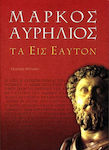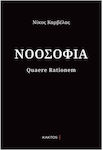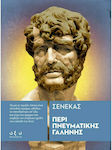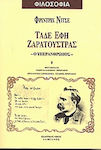Skroutz Buyers Protection
Ο Υπαρξισμός Είναι Ένας ΑνθρωπισμόςCode: 23258501
- Author: Jean - Paul Sartre
- Publisher: Doma
- Μορφή: Soft Cover
- Έτος έκδοσης: 2020
- Αριθμός σελίδων: 101
- Κωδικός ISBN-13: 9786188445949
- Διαστάσεις: 14×21
Jean - Paul Sartre
Similar products
All shops
Prices are calculated for:Luxembourg, Other Payment Options
- 10,50 €
- 9,24 €
- 9,80 €
- 10,50 €
- 10,50 €
- 10,21 €
- 10,86 €
- 12,60 €
- 10,00 €
- 12,60 €
- 12,60 €
- 12,60 €
- 10,50 €
- 9,80 €
Description
Sartre gave the lecture Existentialism is a Humanism in October 1945, aiming to present the core tenets of his philosophy in a concise form and to defend it against certain common misconceptions. The lecture was delivered extemporaneously and was published as a book shortly thereafter, with minimal revisions. The book emerged as probably the most widely read philosophical text of the 20th century.
Man is free, says Sartre, but he wants to imagine himself as bound. He does this because he wants to disclaim the responsibility that his freedom entails. People create phantoms—God, fate, nature, history, society—that supposedly compel them to act as they do. By invoking these phantoms, they can then declare: "It wasn't my fault for what I did, I couldn't do otherwise. I am not responsible for what I am, something else, outside of me, made me this way."
Through this fundamental self-deception, people try to hide from themselves the anguish that comes with the fact that each of us inevitably determines our own destiny. As Sartre says, "Man is condemned to be free."
Specifications
- Format
- Soft Cover
- Number of Pages
- 101
- Publication Date
- 2020
- Dimensions
- 14x21 cm
Important information
Specifications are collected from official manufacturer websites. Please verify the specifications before proceeding with your final purchase. If you notice any problem you can report it here.
Reviews
"The Existentialism is a Humanism" is a short but comprehensive book that explains some of the basic elements of existentialist philosophy. Sartre tries to be simple in his explanations to avoid misunderstandings. The basic principles of existentialist philosophy are analyzed as Sartre makes some comparisons with other philosophical movements. Although the book can be used as an introduction to existentialism, it may oversimplify certain parts of the theory, so I think it is important for those who want to read it to be aware of this.
As for the content itself, I would say that it is easy to follow Sartre's reasoning and he presents his ideas in a structured way. There are some points that I found a bit difficult to understand as the terminology used is quite ambiguous. Also, as the ideas are presented, some flaws in Sartre's thinking can be observed. He confidently uses certain claims to build his arguments and presents some assumptions that he considers universal without sufficient reason.
However, this does not mean that significant conclusions do not emerge from this extensive analysis of the human condition. I found some of the observations regarding meaning, science, and especially ethics, very interesting. Overall, Sartre manages to clarify some elements of existentialism that are often misunderstood and have led to the popular image of existentialism that most of us are familiar with. In doing so, Sartre demonstrates how existentialism is indeed a humanism, as it is a philosophy that encourages action rather than a passive attitude towards life.
(Note: This book contains the text from Sartre's lecture of the same title. Some comments are added to the text for clarification, as well as the observations and questions raised by the audience after the speech.)
Translated from Greek ·- Was it interesting enough?
- I liked the writing style
- I would recommend it for reading
- Paper quality
- Was it relatively easy to read?
- I might read a book by the same author
Did you find this review helpful?





















































